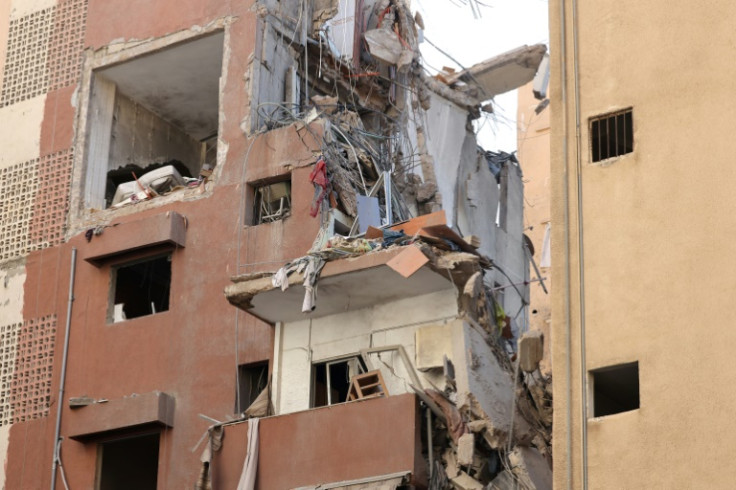
Hezbollah said Wednesday that senior military commander Fuad Shukr was inside a south Beirut building hit by Israel the previous day but that his fate remained unknown.
The strike, which was followed by another, hours later, which killed Hamas political leader Ismail Haniyeh in Tehran, triggered fears the war in Gaza could escalate into a region-wide conflict.
The Israeli military said its Tuesday strike had "eliminated" Shukr, a top Hezbollah commander it blamed for carrying out a weekend rocket attack on the annexed Golan Heights that killed 12 children in a Druze Arab town.
Hezbollah said in a statement that "the great jihadist commander brother Fuad Shukr (Hajj Mohsen) was present" in the building targeted by "the Zionist enemy".
Rescue teams "have been working since the incident happened... to remove the rubble... and we are still waiting for the results of this operation regarding the fate of the great commander and other citizens" who were also in the building, the statement said.
Chairing a cabinet meeting Wednesday, Lebanese Prime Minister Naib Mikati warned: "Things could get out of hand if the enemy continues its reckless and murderous criminal madness.
"The strike on the southern suburbs is a strike on... efforts for calm," Mikati said in a statement released by his office, adding: "Lebanon does not want war".
In a provisional toll, Lebanon's health ministry said four civilians -- two women and two children -- were killed in the strike.
The Israeli army has described Shukr as Hezbollah's "most senior military commander" and "right-hand man" to the group's chief Hassan Nasrallah.
In 2017, the US Treasury offered $5 million for information on Shukr, in his early sixties, describing him as "a senior adviser" to Hezbollah leader Hassan Nasrallah.
The Treasury said he had "a central role" in the deadly 1983 bombing of the US Marine Corps barracks in Beirut.
Earlier Wednesday, Hezbollah condemned the killing of Hamas leader Ismail Haniyeh, who his group said was killed in an Israeli strike in Tehran, where he was attending the swearing-in of Iran's new president.
Hezbollah has denied responsibility for Saturday's deadly rocket strike on the Druze Arab town of Majdal Shams in the Israeli-annexed Golan Heights, though the group claimed multiple strikes on Israeli military positions that day.
On Monday, Israeli Prime Minister Benjamin Netanyahu vowed a "severe" response to the deadly strike.
Lebanon's Iran-backed Hezbollah group has been exchanging near-daily fire with Israel since its Palestinian ally Hamas attacked Israel on October 7, sparking war in Gaza.
On the Lebanese side, the violence has killed at least 535 people, most of them fighters but also including 109 civilians, according to an AFP tally.
At least 22 soldiers and 25 civilians have been killed on the Israeli side, including in the Golan Heights, according to army figures.




